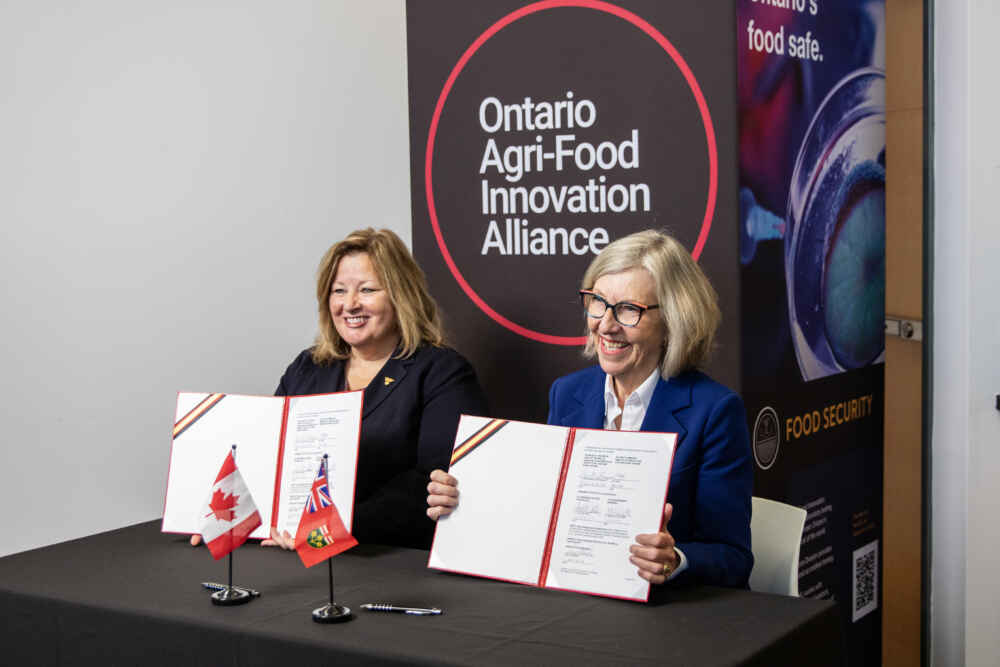
Ontario invests $343M in U of G agri-food initiatives
By Canadian Poultry magazine
News Company NewsSupported programs include lab providing avian influenza testing services for poultry producers.
 Ontario Minister of Agriculture, Food and Rural Affairs Lisa Thompson, left, and U of G president Dr. Charlotte Yates.
Ontario Minister of Agriculture, Food and Rural Affairs Lisa Thompson, left, and U of G president Dr. Charlotte Yates. The provincial government will invest more than $343 million over five years in the Ontario Agri-Food Innovation Alliance, a collaboration among the University of Guelph, the Ontario Ministry of Agriculture, Food and Rural Affairs (OMAFRA) and the Agricultural Research Institute of Ontario (ARIO).
The Alliance leverages U of G expertise and brings together academia, government and industry to support Ontario’s $47-billion agri-food sector with research and innovation, training and laboratory services.
Among many examples of the groundbreaking research and innovation stemming from the Alliance is the Animal Health Laboratory (AHL) providing avian influenza testing services for poultry producers.
As part of Ontario’s enhanced surveillance strategy, AHL has worked with the Canadian Food Inspection Agency on the detection and surveillance of avian influenza and works with OMAFRA to increase surveillance capacity and capabilities in Ontario to limit further spread in the province.
In 2015, the AHL was instrumental in helping contain an outbreak of H5N2 avian influenza in Ontario, with minimal disruption to the province’s poultry industry.
Other Alliance initiatives include:
- The development of the In the Know mental health literacy training program: The program is now delivered by the Canadian Mental Health Association and the Ontario Federation of Agriculture and is licensed in five provinces across Canada.
- Research that helps dairy producers lower their carbon footprint while supporting their bottom line: OMAFRA’s investment in research centres and environmental stewardship research through the Alliance has helped producers implement science-based best management practices to reduce their carbon footprint, improve sustainability and support farm profitability.
- U of G-bred soybean varieties accounting for nearly 50 per cent of the food-grade soybeans grown in Ontario and shipped around the world: The publicly funded soybean breeding program at U of G released more than 280 new varieties since 1970.
Print this page